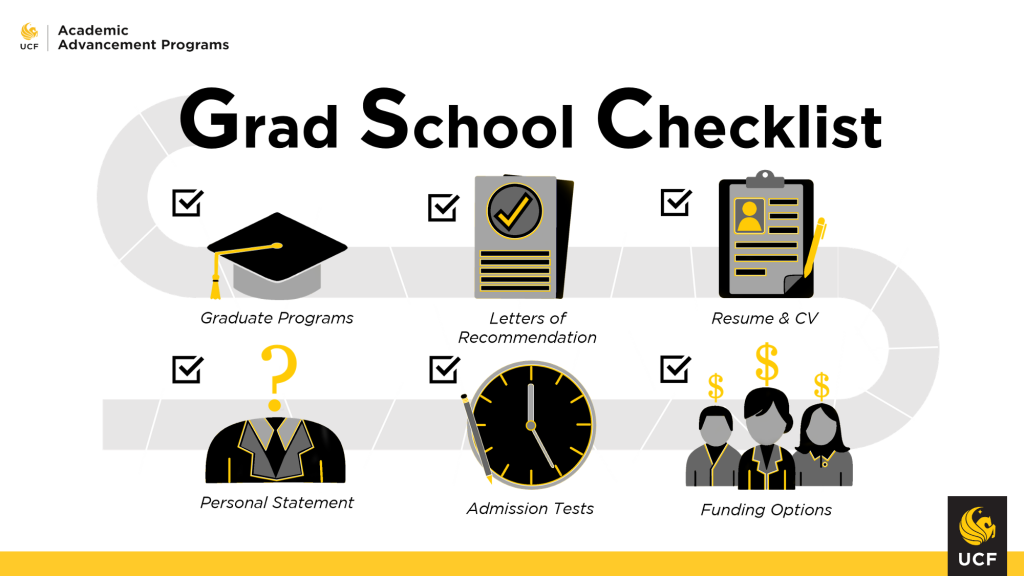Introduction
Graduate school, often referred to as “grad school,” is a significant step in one’s academic and professional journey. It offers an opportunity to delve deeper into your chosen field, gain specialized knowledge and skills, and enhance your career prospects. However, the road to grad school is not without its challenges. It demands careful planning, dedication, and a clear sense of purpose. In this blog post, we will guide you through the process of preparing for grad school, helping you make informed decisions and set yourself up for success.
- Define Your Goals and Objectives
Before embarking on the journey to grad school, it’s crucial to have a clear understanding of your goals and objectives. Ask yourself:
Why do I want to pursue a graduate degree?
What are my career aspirations, and how will grad school help me achieve them?
Which field or specialization aligns with my interests and career goals?
Take the time to reflect on these questions and create a roadmap for your grad school journey. Defining your objectives will guide your choices throughout the preparation process.
- Research Programs and Specializations
Once you’ve clarified your goals, it’s time to research graduate programs and specializations that align with your interests. Start by exploring different universities and institutions that offer the programs you’re interested in. Consider factors like location, reputation, faculty expertise, and available resources.
Additionally, look into various specializations within your chosen field. Grad school offers a chance to dive deep into a niche area of study, so ensure your chosen program aligns with your academic and career interests.
- Determine Admission Requirements
Different graduate programs have various admission requirements, and it’s essential to understand what each program demands. Admission requirements may include:
Undergraduate degree prerequisites
Standardized tests (e.g., GRE, GMAT)
Letters of recommendation
Statement of purpose
Academic transcripts
Work experience (for certain programs)
Carefully review the admission requirements for the programs you’re interested in and make a checklist to ensure you meet all criteria.
- Prepare Your Application Materials
With a clear understanding of admission requirements, you can start preparing your application materials. Here are some key components to focus on:
a. Statement of Purpose: Your statement of purpose is a critical part of your application. It should articulate your reasons for pursuing the program, your academic and professional background, and how the program aligns with your goals. Be concise, genuine, and specific in your statement.
b. Letters of Recommendation: Reach out to professors, employers, or mentors who can write strong letters of recommendation on your behalf. Choose individuals who know you well and can speak to your abilities and potential.
c. Standardized Tests: If required, prepare for standardized tests like the GRE or GMAT. Consider enrolling in test preparation courses or using study guides to perform at your best.
d. Academic Transcripts: Ensure that your academic transcripts are up to date and accurately reflect your academic achievements.
- Seek Financial Aid and Scholarships
Graduate education can be expensive, and many students rely on financial aid and scholarships to fund their studies. Explore the various financial assistance options available, including:
Fellowships
Teaching or research assistantships
Scholarships
Grants
Loans
Research the financial aid opportunities offered by your chosen university and external organizations to alleviate the financial burden of grad school.
- Prepare for Interviews
Some graduate programs require interviews as part of the application process. If you’re invited for an interview, it’s essential to prepare thoroughly. Practice answering common interview questions, research the program and faculty, and be ready to discuss your qualifications and aspirations confidently.
- Stay Organized
Applying to grad school can be a complex process, with multiple deadlines and requirements to juggle. To stay organized, create a calendar with all the application deadlines, standardized test dates, and requirements for each program. This will help you manage your time effectively and avoid last-minute stress.
- Polish Your Resume/CV
Your resume or curriculum vitae (CV) should highlight your academic achievements, work experience, and relevant skills. Tailor it to emphasize how your background makes you a strong candidate for your chosen program.
- Proofread and Edit
Before submitting your applications, ensure that all your documents, including your statement of purpose and CV, are error-free. Typos and grammatical errors can leave a negative impression on admissions committees.
- Submit Your Applications
Once you’ve completed all your preparations, it’s time to submit your applications. Make sure to submit them before the deadlines to avoid any last-minute technical issues.
Conclusion
Preparing for grad school is a significant undertaking, but with careful planning and dedication, it can be a rewarding experience that propels your academic and professional career to new heights. Whether you’re aiming for a master’s degree or a Ph.D., the key is to define your objectives, research programs, and meticulously prepare your application materials. Keep in mind that the journey to grad school is not just about getting accepted but also about setting yourself up for success once you’re there. Good luck on your grad school preparation journey, and may it lead to a bright and fulfilling future.




